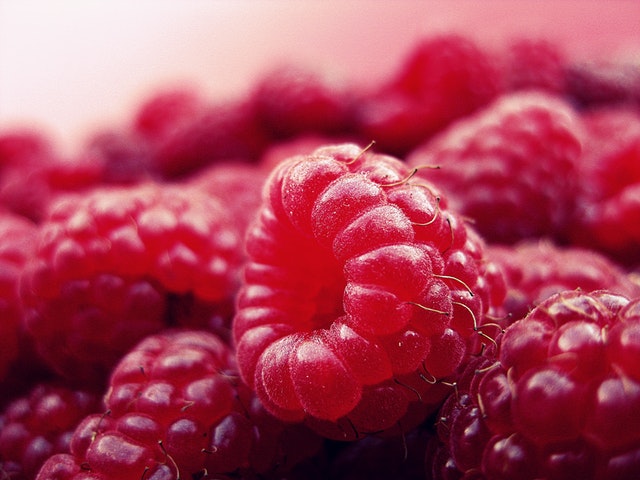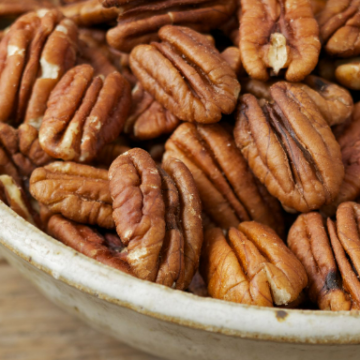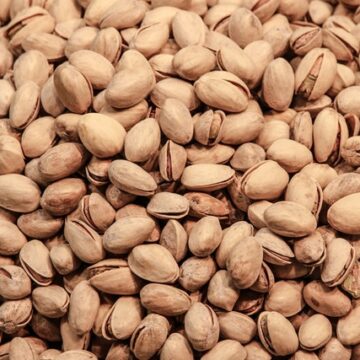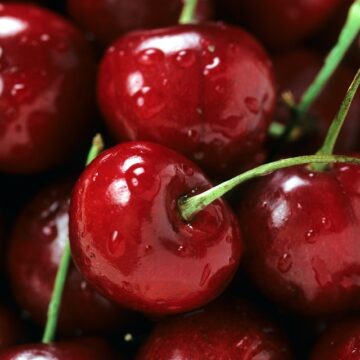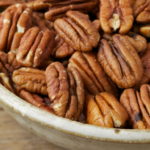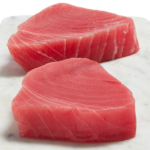Before you start feeding your dog raspberries, make sure that you’re following certain safety guidelines. Sugar, particularly the type found in raspberries, is dangerous for your dog. Even natural sugar is dangerous. In addition, raspberries contain high amounts of xylitol, a type of sugar that is harmful for dogs. This is why raspberries should only be given in small amounts. For this reason, you should not give your dog any extra sugar.
What are raspberries?
Raspberries are edible berry plants related to roses. They grow on shrubs and are perennial in nature. Like roses, raspberries have thorns. They produce fruit by pushing up primocanes, which are the stems of the plant. The first year they bear foliage, but in the second year they turn into flowers and bear fruit. After the flowering season has passed, the raspberries will die. This is why raspberries are also known as “everbearing” raspberries.
There are several benefits of eating raspberries, including anti-aging, skin-whitening, and fighting acne. These fruits are also packed with antioxidants and fiber. In addition to their delicious taste, raspberries can help prevent cancer and support healthy weight management. You can eat them fresh or preserve them to enjoy throughout the year. If you’re wondering what are raspberries, here are some of the most common uses. But why do we eat them?
Raspberries are an excellent source of Vitamin C and are often eaten raw or baked. They also have many uses in cooking. You can eat them plain, as a snack, or add them to a salad. They’re also a delicious ingredient in desserts. If you’re new to preparing raspberries, however, it’s best not to eat too many, as they will eventually turn bitter and sad.
Raspberry fruits are the edible part of several shrubs belonging to the Rubus subgenus. They grow in dense thickets and contain a high sugar content. The fruit itself is an aggregate of seeds from different ovaries of a single flower. Despite its sweet taste, raspberries have anti-cancer properties. The antioxidant properties of raspberry fruits are attributed to their anthocyanin content. These pigments help protect cells from transforming and mutating.
Nutritional benefit of raspberrie to a dog’s diet?
Adding raspberries to your dog’s diet can have several benefits. They contain dietary fiber, which is good for digestion. In addition, they also contain antioxidants, which may help prevent various illnesses and improve your dog’s health. In addition, raspberries contain natural sugar, which makes them tasty and nutritious. However, these sweet berries should be fed to dogs in small amounts, as they may cause large swings in blood sugar.
The richness of vitamin C and ellagic acid in raspberries contributes to their anti-cancer properties. Vitamin B6 is also essential for the production of proteins, neurotransmitters, and hormones in the canine body. Fiber is essential for maintaining intestinal flora and stool consistency. Fiber content should be between two to five percent of a dog’s diet. Vitamin C in raspberries helps reduce oxidative stress, promotes collagen formation, and supports the development of the teeth. Vitamin E and manganese are also important for a dog’s overall health, including bone and cartilage preservation.
A few ounces of raspberries a day is a good amount for a dog to consume. However, it is important to monitor your dog closely for any abnormalities after the fruit is consumed. Raspberries can cause gastrointestinal upset, which may cause adverse health effects. Adding raspberries to your dog’s diet is a treat and should not make up more than ten percent of its daily caloric intake.
One drawback to raspberries is their high sugar content. However, it is possible that your dog may not be able to process the sugar content in raspberries. This is because raspberries contain xylitol, a natural sweetener in humans. In dogs, xylitol can cause liver failure, hypoglycemia, and seizures. If you do give raspberries to your dog, make sure to read the label carefully.
How do you prepare raspberries for a dog?
If you want to offer your dog the delicious taste of raspberries but are concerned about choking hazard, you can puree the fruit and sprinkle it on his food. In order to prevent choking, the raspberries must be washed first. Alternatively, you can serve it on the floor or make homemade treats for your dog. The first step is to choose a time that is convenient for you.
Although raspberries do not contain a high level of sugar, you should not feed them raw raspberries. Some berries are toxic to dogs and puppies, so make sure to consult your vet first. If you suspect that raspberries are toxic to your dog, consider removing them from its snack list. Remember that any fruit or vegetable should be thoroughly washed before feeding to your dog. You can also provide raspberries to your dog as a treat if you smash them first. However, be mindful that your dog may eat these berries directly from your hand or floor if you accidentally drop it on the ground.
Before offering raspberries to your dog, check for xylitol content. You may want to limit the amount of xylitol to one to six per serving. One cup of raspberries contains 0.05 grams of xylitol. Your 20-pound dog would have to consume up to four grams of xylitol in order to experience a health emergency, but the amount is too low for your pet to experience a sugar crash.
The amount of raspberry you serve your dog will depend on their size and breed. Large dogs can eat up to six to ten raspberries per day while small dogs can only handle three to six. However, if you are unsure about the amount of raspberry you should give your dog, make sure to consult with your veterinarian. And, as always, it is better to feed your dog small amounts of raspberries, especially if you can store them in the freezer.
Are raspberries good for dogs?
While raspberries are a natural food source for dogs, they do contain a substance known as xylitol. This sugar can be toxic to dogs and can cause diarrhea, vomiting, and even liver failure. Although the amount of xylitol in raspberries is small, significant amounts can cause serious problems. Because of this, feeding raspberries to your dog should be limited to a couple of cups per day. Also, make sure to buy fresh raspberries rather than canned or syrup.
Raspberries are considered a healthy snack, and many people enjoy growing them in their gardens or buying them from the store. Raspberries are also delicious in desserts. If you let your dog sniff around the raspberry bush, they might sneak a few. If you have a punnet of them, they may even nag you for them. And if you try to sneak a couple, don’t be surprised if your dog starts asking you about it.
You can also mix raspberries with other fruit for a healthy, nutritious dog treat. Blend the berries with organic juice or half an avocado. Then, freeze the puree in ice cube trays, making frozen treats for your pup. When giving your dog raspberries, be sure to monitor their intake as it can cause serious health problems, such as allergic reactions, stomach upset, or choking. It is best to use a natural sweetener, such as honey or coconut oil, and avoid adding extra sugar or fat to the berries.
While raspberries are high in natural sugars and are safe to give to your dog, you should remember that these berries have a lot of protein in them. This is why you should only give raspberries to larger dogs compared to smaller dogs. If your dog eats a small amount of these berries, the same applies to smaller ones. It is recommended to feed your dog only a few raspberries a day, but not as a regular snack.
Can puppies eat raspberries at all?
Raspberries are delicious and nutritious for your dog. They are low in calories and sugar, and have fiber that eases digestion and keeps your puppy fuller longer. In addition, they contain antioxidants that help fight off free radicals, which can damage your dog’s body and increase its risk of cancer and heart disease. Plus, raspberries also contain essential nutrients that your dog needs to stay healthy, such as vitamin C and manganese.
Despite the risk of causing digestive problems, raspberries are actually safe for dogs in moderation. However, it’s best to only serve your dog a small amount and make sure your dog doesn’t get any of the xylitol in them. A small amount is fine, but you shouldn’t leave any raspberries in the yard or on the ground, since a large amount of xylitol can be fatal for dogs. If you’re unsure, consult your vet before feeding your dog any raspberries.
A little bit of raspberries a day is OK for most dogs, but if you’re feeding your Great Dane, it’s best to start out slowly and give your puppy a small serving each week. Unless you’re sure that your puppy won’t get sick from eating raspberries, you shouldn’t give it to them more than one or two cups a week. However, you should watch your dog’s intake of raspberries. A small serving is a healthy serving of raspberries, and one or two cups a week is okay for him.
In addition to avoiding sugary fruit, raspberry treats should be served raw. However, if you’re feeding your dog canned raspberry pie filling, you should make sure the berries are free of stems, skins, and pits. Some canned foods also contain ingredients that are toxic to dogs. Aside from that, raspberries are an excellent source of fiber, which can help to keep your puppy healthy.
